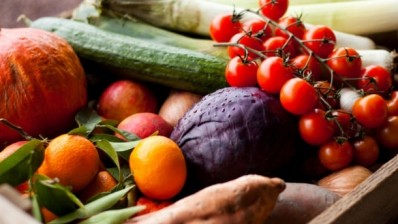HI SOUTH EAST ASIA
Functional fruits focus: Taiwan contract manufacturer opens Indonesia office to tap into local ingredients

TCI offers a service called Integrated Bioscience Design (IBD) – a product ‘turnkey’ service that enables the company to custom design a finished functional food or nutraceutical product for customers to brand and market. It currently has customers in 40 countries, including Singapore, Malaysia, and Thailand.
“We would do the R&D, formulation, testing, package design, right down to how the product would taste,” said Aaron Chen manager for TCI’s marketing department, speaking at last week’s HI South East Asia show in Jakarta.
“The products we offer are not only tested for effectiveness, but it has to look and taste good too.”
Customers can either choose from TCI’s range of anti-ageing, antioxidant or slimming drinks, or they can specify their needs and TCI will custom design products for them.
“Developing new products may take longer, as there maybe new regulatory requirements, depending on which country the final product will be marketed,” Chen said.
Because TCI’s R&D team works with a wide range of fruit-base extracts for its products, the company saw Indonesia’s potential as source of new extracts for future functional ingredients.
“Here in Indonesia, they have a lot of fruits. We are a natural extract company as well, so the fruits here are unique and interesting to us,” Chen said.
One of those fruits that caught the company’s fancy was the Salak fruit.
A fruit from the species of palm tree (family Arecaceae), native to Java and Sumatra, the Salak fruit, with its snake-like skin, is cultivated in other regions as a food crop, and and abundant as well in Bali, Lombok, Timor, Malaysia, Maluku and Sulawesi.
Health benefits
Chen said once TCI refined its extraction process for local fruits like the Salak, the company would be able to market the extracts in the local market as well, with the Indonesians are already aware their fruits’ medicinal benefits.
Salak for example contains beta carotene, so the fruit is used to help treat eye diseases. Salak also contains high levels of protein, carbohyrates, dietary fibre, calcium and thiamine.
TCI also plans to partner with associations such as PATPI or Perhimpunan Ahli Teknologi Pangan Indonesia, the country’s professional food technology association to collaborate on research about functional ingredients. It is also working with Indonesia’s regulator, and the halal certification body.
TCI was established in 1980 and has more than 300 employees at its Taiwan HQ and additional manufacturing facilities in China and Japan.
While the Jakarta office is small at the moment, with only two staff handling sales and local regulation requirements, Chen is confident TCI’s South East Asia base would eventually expand.
The company might also set up an R&D facility in Indonesia, for future research collaborations with local associations, he said.
“We want to collaborate with these organisations to establish our growth in Indonesia,” Chen concluded.


















